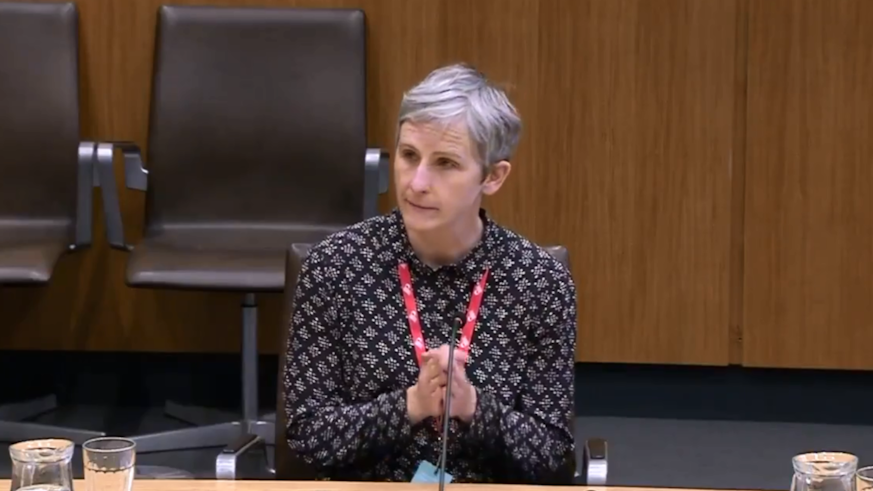Allotment and community gardens expert addresses Climate Change, Environment and Rural Affairs Committee
12 April 2019

Dr Hannah Pitt, Sêr Cymru II Research Fellow at Sustainable Places Research Institute, addressed the benefits and challenges of allotments and community gardens before the National Assembly for Wales’ Climate Change, Environment and Rural Affairs Committee on Wednesday 3 April 2019.
Dr Pitt leads the project "Knowing to grow: Increasing the reslience of plant centred food production skills". Supported by the Sêr Cymru II programme which is part-funded by Cardiff University and the European Regional Development Fund through the Welsh Government, the research aims to enhance the resilience of knowledge and skills dimensions of agri-food systems by informing policy, theory and practice.
Addressing the Committee, Dr Pitt was keen to underscore the potential educational, health and biodiversity benefits and the importance of continued, legislated support for community growing and allotments in Wales.
Dr Pitt said: “There are some key things that need to be looked at, particularly the impact of austerity on communities and community initiatives. There's the problem of food insecurity, which is something that this topic connects to. There are new challenges but also new opportunities. An area of opportunity is the post-Brexit agricultural policy; what happens to the rural development plan investment, which has been channeled into supporting community growing previously.”
When asked for suggestions on how more land could be made available for allotments or community groups, Dr Pitt added: “The first step is a mapping exercise so that we understand the current situation properly. There's a useful role for partnership with the third sector. It's not just a question of knowing there's a site available and being able to take it on; it's also knowing how to go through that process.”
Sustainable Places Research Institute has an international reputation for delivering relevant, robust, research that is used by policymakers across Wales, the UK and further afield to support evidence-based policy making.
A full transcript of the session can be viewed online.
